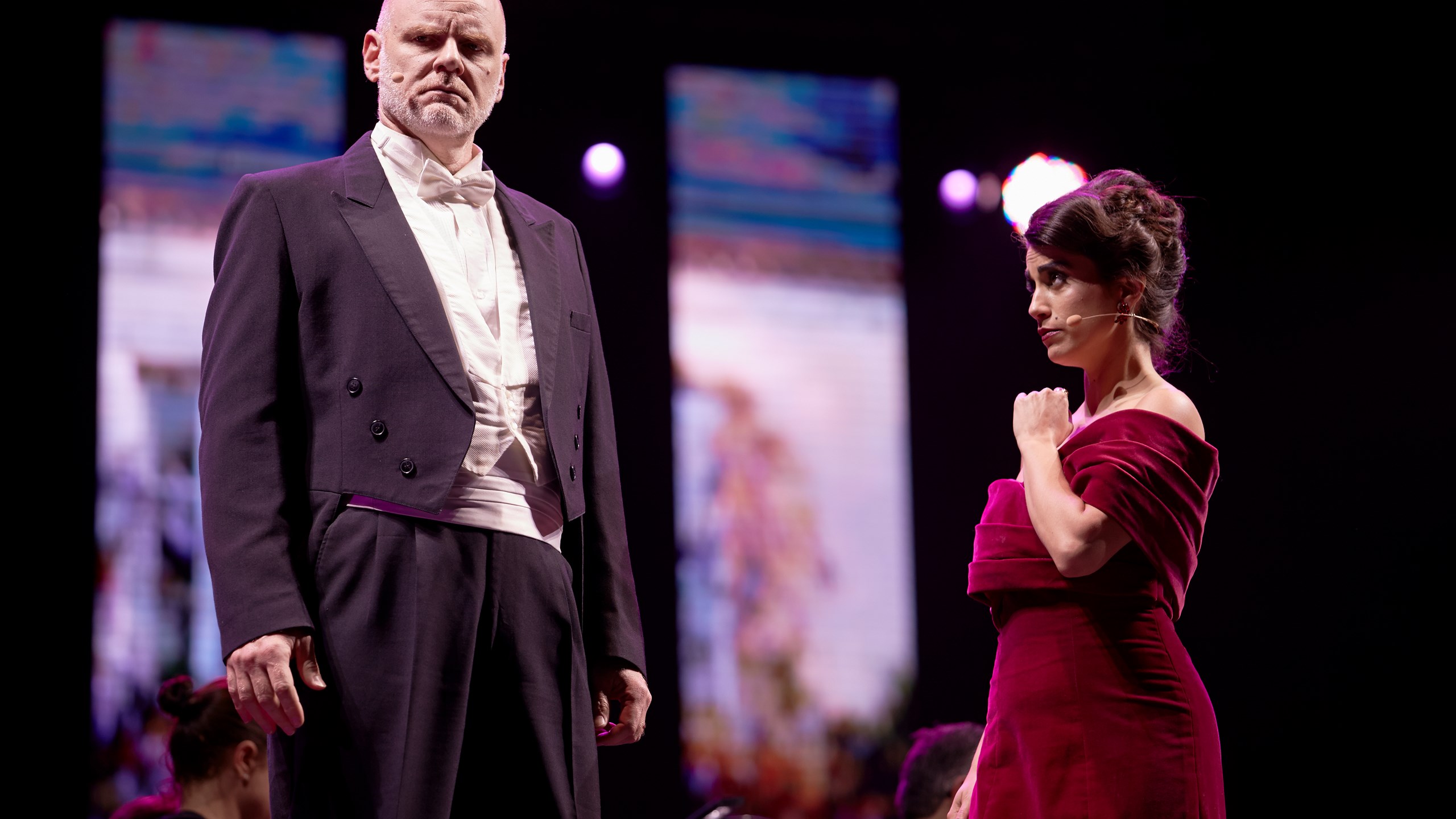By Daniele Foti-Cuzzola
To coincide with Father's Day we’ve compiled a list of some of the most iconic fathers and father figures in opera.
Gianni Schicchi from Puccini’s Gianni Schicchi – The relationship between Puccini’s Gianni Schicchi and his daughter Lauretta has inspired one of the most beautiful father-daughter arias in the operatic repertoire – O Mio Babbino Caro. In this 1918 Opera Buffa, Puccini’s protagonist, Gianni Schicchi makes some questionable decisions but nobody can question his devotion to his daughter Lauretta. When the handsome Rinuccio expresses his intention to marry Schicchi’s daughter Lauretta, his family agree on the condition that they have inherited money from their relative Buoso Donati. But when Donati’s will reveals that he has left his inheritance to a monastery Rinuccio’s family refuse to allow him to marry Lauretta. Upon hearing this Lauretta sings O Mio Babbino Caro expressing her sadness if she can’t marry him. Determined to help his daughter, Schicchi impersonates the deceased Buoso Donati and rewrites the will. Schicchi is aware he is risking eternal damnation in hell but thinks its worth it for the sake of his daughter’s happiness.
Alidoro from Rossini’s La Cenerentola – In Rossini’s iteration of the beloved fairy tale Cinderella, the fairy godmother is replaced with a male figure – Alidoro, who is a philosopher and the Prince’s former tutor who serves as a father figure to the Prince and Cenerentola. Upon discovering the goodhearted yet beautiful Cenerentola, Alidoro is determined to help the two overcome multiple obstacles to be together – disguised as a beggar he promises Cenerentola that God will reward her kindness and bring her to the ball. Alidoro is a stark contrast to Cenerentola’s evil stepfather Don Magnifico. Eventually, it is Alidoro’s ability to sabotage the Prince’s carriage so that it breaks down Infront of Cenerentola’s home that sees the two star-crossed lovers finally unite and get their happily ever after proving that everyone could do with a godfather figure like Alidoro.
Giorgio Germont from Puccini’s La Traviata – Giorgio is by no means a villain but this father is stuck in an interesting situation where one child’s happiness can ultimately affect his other child’s future, that sees him make some questionable choices. When word gets around that Giorgio’s son Alfredo has begun a relationship with the high profile courtesan Violetta, his daughter’s fiancé threatens to call off their engagement as being associated with a courtesan would be a scandal. Determined to keep face, Giorgio interferes and visits Violetta telling her that if she really loves his son she would leave him. To Giorgio’s surprise, Violetta agrees and she leaves Alfredo which devastates him. Giorgio eventually sees the error of his ways and reprimands his son who in a fit of heartbreak denounces Violetta by throwing money at her feet. Upon hearing of Violetta’s illness, Giorgio tells his son about Violetta’s noble sacrifice and makes arrangements for the two to briefly reunite before she dies. While Giorgio won’t be winning any father of the year awards he was at least compassionate enough to see the error of his ways.
Il Commendatore from Mozart’s Don Giovanni – Mozart’s Don Giovanni has few likeable male characters including the leading man – Don Giovanni but one saving grace is the ill-fated Commendatore who is killed in the opening scene of the opera. When Don Giovanni breaks into Il Commendatore’s home he attempts to seduce his daughter, Donna Anna. Upon hearing his daughter’s call for help, Il Commendatore comes to the rescue and forces the masked Don Giovanni to a duel where he is killed. His selfless act saved his daughter and Il Commendatore haunts Don Giovanni and eventually gets his justice, he offers Don Giovanni a chance to repent but when he refuses he is ultimately dragged into hell – and once again Il Commendatore has freed his daughter from Don Giovanni’s schemes - even from beyond the grave.
Sarastro from Mozart’s The Magic Flute
Throughout Mozart’s The Magic Flute, Sarastro is depicted as the main antagonist thanks to the convincing Queen of the Night, who persuades Prince Tamino to think that Sarastro has held her daughter captive. But as the story progresses it becomes clear that the Queen of the Night has manipulated everyone. Sarastro is a protective father and punishes the evil Monostatos for his lustful behaviour towards Pamina. He also wants to make sure Prince Tamino is worthy of his daughter and he makes him undergo multiple trials of wisdom. Once true love has proven to conquer all Sarastro is announces the sun’s triumph over the night and celebrates his daughter’s happiness.


